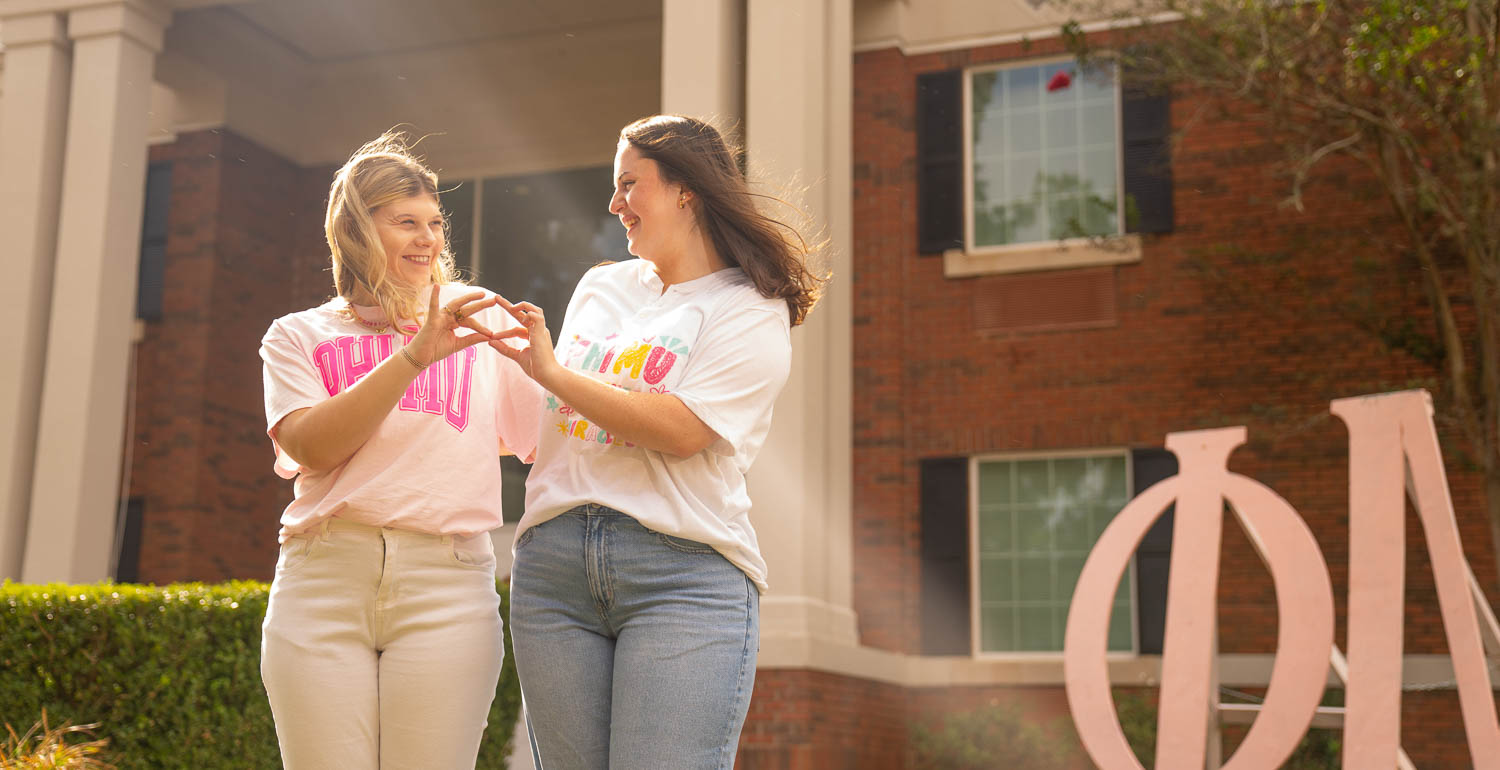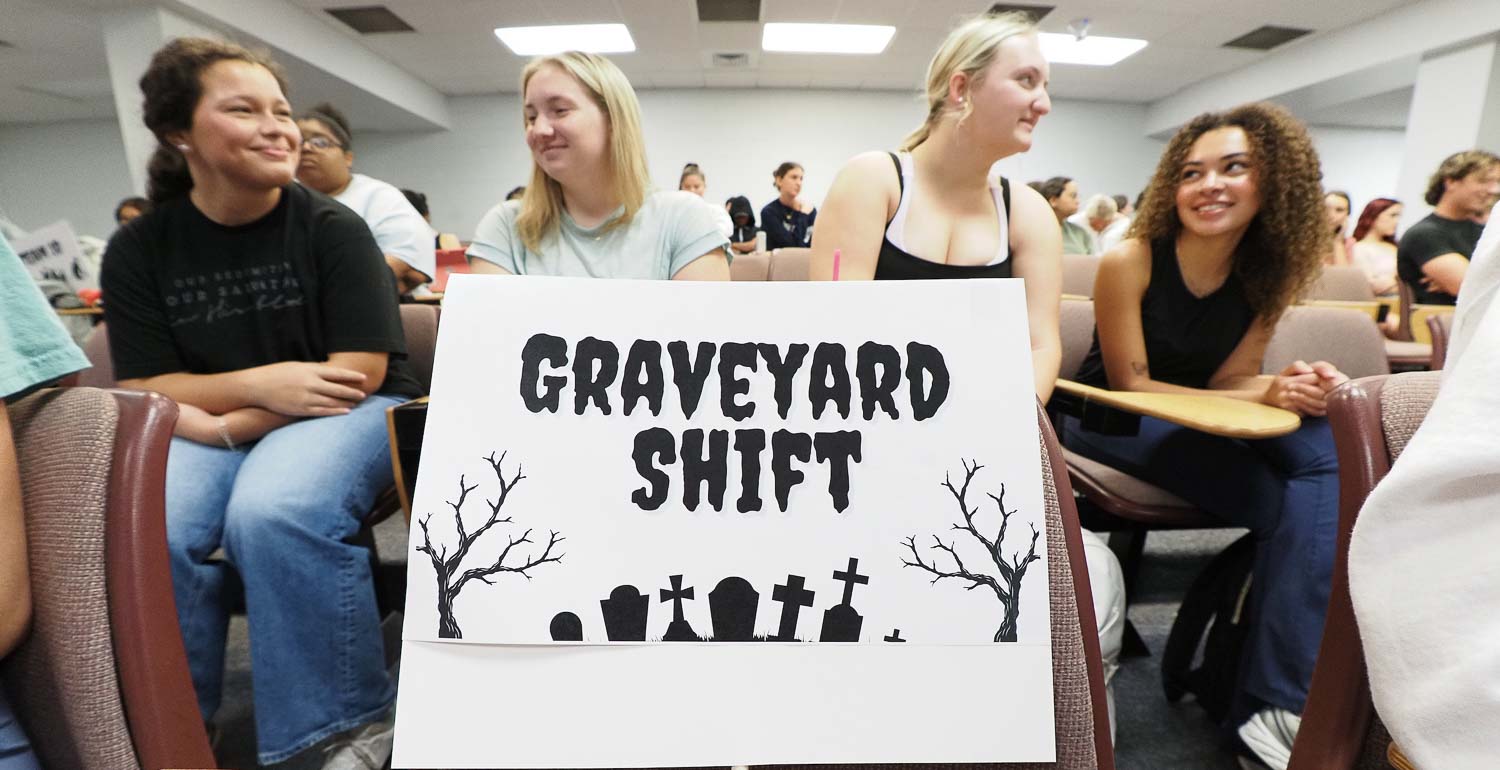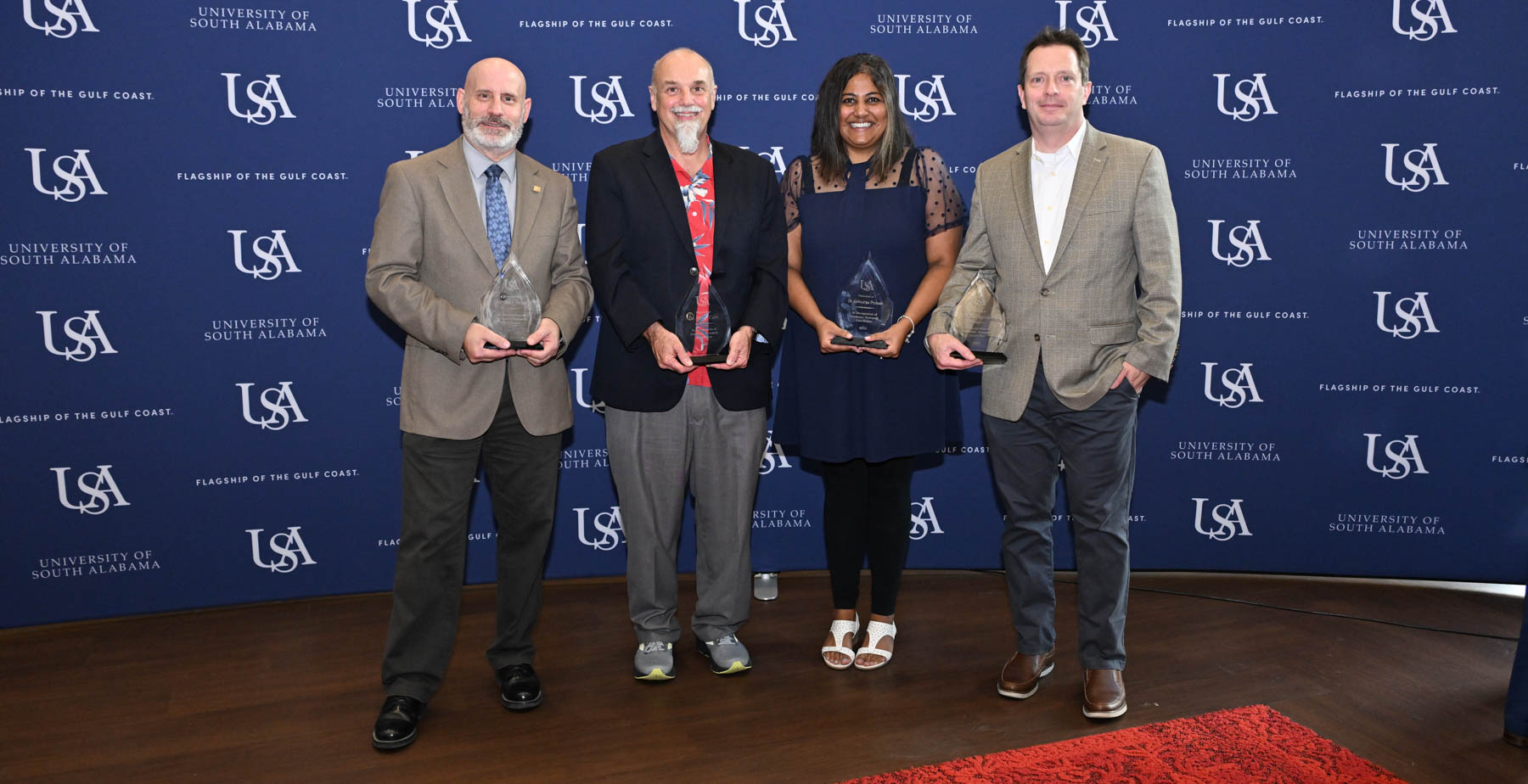NSF Funding Creates Research Experiences for Undergraduates
Posted on October 3, 2018
Computer Science faculty at the University of South Alabama School of Computing have been able to provide some unique paid research experiences for undergraduates thanks to supplemental funding from the National Science Foundation.
Both Dr. Todd Andel and Dr. Ryan Benton are the lead principal investigators on recent awards from the Science Foundation’s Major Research Instrumentation Program, which funds the purchase or development of significant scientific instruments that would otherwise be difficult for universities to obtain. Supplements to the awards provide funding for a total of four students to be paid for learning to use and conduct research on the new instrumentation.
Andel and co-principal investigator Dr. Todd McDonald are cyber security researchers who purchased a side-channel measurement and analysis system with their award. The system allows researchers to do sophisticated analysis of cyber security vulnerabilities based on power and electromagnetic emanations from the hardware of a given device. Undergraduate students doing research are introduced to basic scientific research skills and experience while learning how to conduct research on the system. The faculty also want to help students develop research paths that can be transitioned to graduate research.
Tristen Higginbotham, who completed her undergraduate research experience during the summer, is doing just that. The honors student and double major in computer engineering and electrical engineering used the experience to continue her honors research on side-channel differences between software and hardware implementations of the same cryptographic algorithm. She will continue to develop this line of research as a graduate student in South’s computing Ph.D. program.
Data scientists Benton and Dr. Jordan Shropshire used their grant to buy a computational cluster that supports multiple machine learning and data mining environments, with a goal of analyzing the impacts of those environments on performance and forensic residue. The team will research what environments provide safe and effective data mining results, as well as discover problems and allow recommendations of solutions.
Student Robert Cox will be working with Benton to determine the impact of the choice of Big Data environments on the design and execution of parallel machine learning algorithms. He will help evaluate performance and determine whether there are any significant costs of time or memory. William Massingill will assist Shropshire with research on understanding the complex, self-organizing nature of multi-layer systems, working to both help conceptualize the unique properties observed in the research, and provide technical, analytical expertise.





